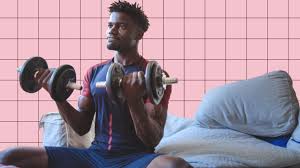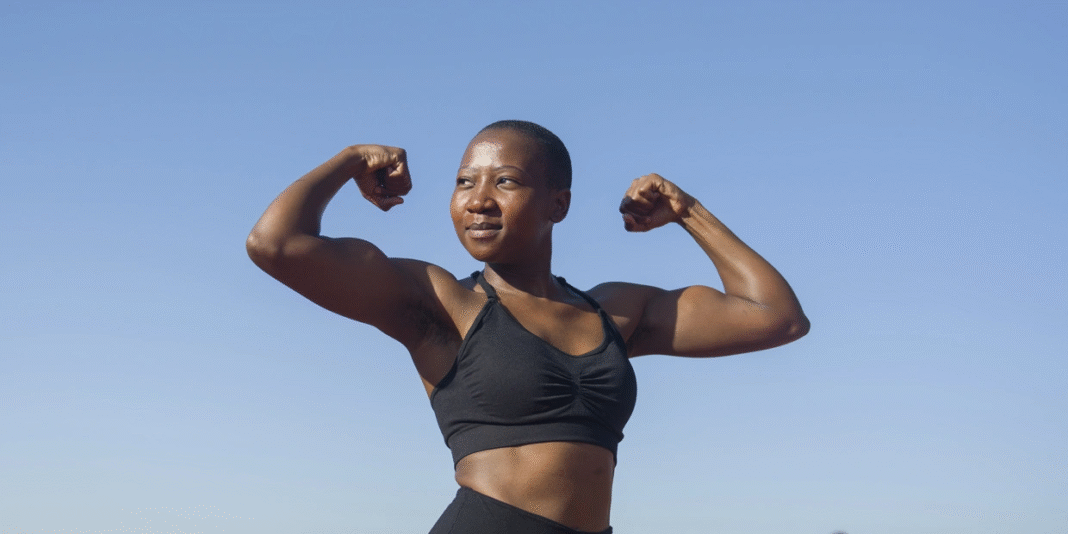You don’t need a fancy gym membership or expensive equipment to build muscle. With the right plan, determination, and some household items, you can grow stronger and fitter right at home—or even outdoors. Whether you’re tight on time, budget, or simply prefer working out in private, this guide will show you how to build muscle without stepping foot into a gym.
Understanding Muscle Building Basics
Before jumping into the workouts, it’s important to understand how muscle growth works. Muscle building (also known as hypertrophy) occurs when you challenge your muscles through resistance and allow them to recover.
Key Principles for Muscle Growth:
- Progressive Overload: Continuously increasing resistance or reps over time.
- Proper Nutrition: Eating enough protein and calories to support growth.
- Recovery: Rest is essential for your muscles to repair and grow stronger.
Use Your Bodyweight Wisely
Your body is the best and most accessible gym equipment you have. Bodyweight exercises can be extremely effective if performed with proper form and intensity.
Top Bodyweight Exercises for Muscle Growth:
Upper Body:
- Push-ups (regular, diamond, decline, wide grip)
- Dips (use a chair or edge of a sofa)
- Pike Push-ups (targets shoulders)
Lower Body:
- Squats (regular, sumo, jump squats)
- Lunges (forward, reverse, walking lunges)
- Glute Bridges or Hip Thrusts
Core:
- Planks
- Leg Raises
- Russian Twists
- Mountain Climbers
You can increase the challenge by slowing down the movement, increasing reps, or reducing rest time between sets.
Turn Household Items into Weights
No dumbbells? No problem. Look around your house—there are plenty of alternatives:
- Water Bottles or Gallon Jugs: Great for curls and shoulder raises.
- Backpacks Filled with Books: Use it for squats, lunges, or rows.
- Towels: Can be used for resistance rows or sliding core exercises.
- Stairs: Ideal for step-ups or calf raises.
Try Resistance Bands
Resistance bands are a low-cost, space-saving way to simulate weight training. They come in various strengths and allow you to perform exercises for all major muscle groups.
Examples:
- Banded squats or lunges
- Bicep curls
- Shoulder presses
- Chest flys
- Seated rows
They’re also excellent for improving joint health and increasing time under tension.
Focus on Nutrition
Muscle isn’t built from exercise alone. Food plays a massive role.
Basic Muscle-Building Nutrition Tips:
- Protein: Aim for 1.6–2.2g per kg of body weight daily (eggs, chicken, beans, tofu).
- Carbs: Fuel your workouts and aid recovery (rice, oats, fruits).
- Healthy Fats: Essential for hormone production (avocados, nuts, olive oil).
- Hydration: Stay hydrated to support overall performance.
Try to eat a protein-rich meal or snack within 30–60 minutes after your workout.
Follow a Structured Routine
Stick to a workout schedule that includes push, pull, and leg movements throughout the week.
Sample Weekly Plan:
- Day 1 – Push (Chest, Shoulders, Triceps)
- Day 2 – Legs
- Day 3 – Pull (Back, Biceps)
- Day 4 – Core + Cardio
- Day 5 – Full Body
- Day 6 – Active Rest (stretching or walking)
- Day 7 – Rest
Remember, consistency beats intensity. It’s better to train regularly with moderate effort than to go all out occasionally.
Track Your Progress
Keep a notebook or app to log your reps, sets, and how you feel after each workout. Challenge yourself by increasing your reps or adding resistance each week.
You can also take photos or measure your arms, chest, waist, and legs every few weeks to visually track changes.
Get Enough Rest and Sleep
Your muscles grow while you rest, not while you train. Aim for:
- 7–9 hours of sleep each night
- At least one full rest day per week
- Light stretching and mobility work to aid recovery
Stay Motivated and Consistent
Working out without a gym might feel less structured, but it can be just as effective. Here’s how to stay motivated:
- Set short-term and long-term fitness goals.
- Join online fitness communities or challenges.
- Follow workout videos or apps for guidance.
- Mix up your routines to avoid boredom.
Consider Calisthenics Progressions
Once basic bodyweight moves get easy, level up:
- Push-ups → Clap Push-ups → Handstand Push-ups
- Squats → Jump Squats → Pistol Squats
- Planks → Side Planks → Plank with Shoulder Taps
These movements increase difficulty and improve strength, balance, and control.
Final Thoughts
Building muscle without going to the gym is not only possible—it’s powerful. You can achieve incredible strength and a toned body using your own weight, a few common items, and some creativity. Stick with a routine, eat well, rest, and stay consistent. Your results will speak for themselves.
FAQs
Q1: How long does it take to build muscle at home?
A: Visible changes can take 4–8 weeks, depending on consistency, diet, and effort.
Q2: Can bodyweight exercises really build muscle?
A: Yes! Especially when done with progressive overload and proper form.
Q3: Do I need supplements to gain muscle?
A: No, but protein powders or creatine can help if you struggle to meet nutritional needs.
Q4: Is it okay to work out every day?
A: It’s fine as long as you alternate muscle groups and allow recovery.
Q5: What’s the best bodyweight exercise for muscle gain?
A: Push-ups, squats, pull-ups, and dips are top choices for full-body strength.


